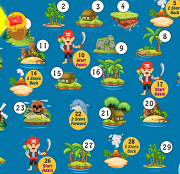Snakes Science Game
This science game is helpful in learning some facts about snakes. Most people don't know much about snakes, and this article is meant to provide a quick overview of the many fascinating facts about this reptile. Snakes are cold-blooded ectotherms. They shed their skins to get rid of parasites. The male snake initiates the courtship process by rubbing his chin against the female's neck, and coiling around her during the nuptial interlude. During mating season, male snakes also perform a combat dance, a ritual display of aggression.
Snakes are ectotherms
Snakes grow throughout their lives. They replace their outer layer of skin by moulting. This process has many purposes, including replacing old skin, shedding parasites, and allowing them to develop new skin. During this process, they also tend to eat a large meal. While shedding can be painful for the snake, it also helps them maintain body temperature. Most snakes lay eggs, but pythons may also produce live young.
They are cold-blooded
The word "cold-blooded" comes from the Greek words ektos, meaning outside, and therm, meaning heat. Snakes are cold-blooded because they do not produce their own body heat. This gives them a major advantage over other animals, as they do not need to consume as much food. Instead, they hibernate in colder climates to conserve energy. During the warm months, they feed on their prey and breed.
They are ectotherms
Being an ectotherm has its advantages and disadvantages, and one of them is that it requires an external source of heat. Ectotherms are often better able to conserve energy than their warm-blooded counterparts. Rattlesnakes, for example, live for 15 to 20 years relative to their body size. Since they have variable diets, snakes usually eat when there's food available. However, it's not a good idea to leave snakes in an unheated environment during this time.
They shed their skin to get rid of parasites
Snakes shed their skin to get rid of internal parasites, but there are times when they don't. These conditions include malnutrition or too-high or too-low humidity, as well as an underlying medical condition. Although the main reason for snakes to shed is to eliminate external parasites, other reasons include pain, rebellion, or bacterial infections. A veterinarian should always be consulted to rule out medical problems and prevent permanent damage to the snake's skin.
They are not venomous
Most snakes are not venomous. However, if provoked, snakes will strike or slither away. Snakes are able to flatten their heads and strike multiple times, depending on the situation. The bite of a snake is powerful and can leave deep wounds. Moreover, snakes produce an anticoagulant in their saliva, which causes blood loss. The best way to protect yourself from snake bites is to keep a safe distance from them and ideally avoid them.










